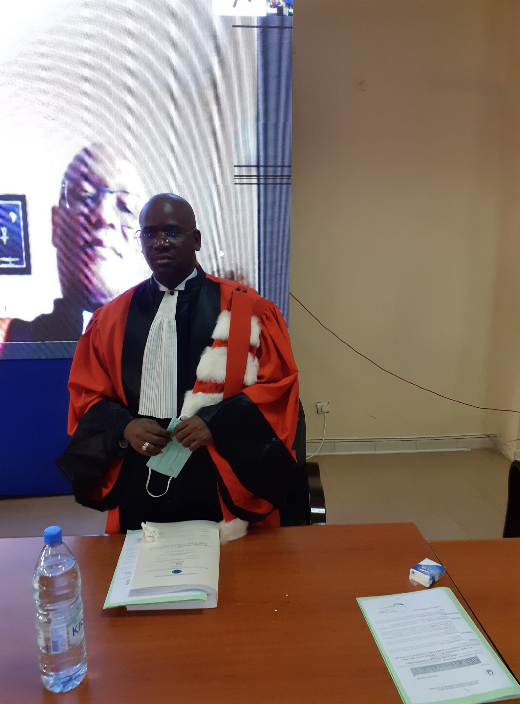Twenty-Two Students are the First to be Enrolled in the new NELGA Land Governance Masters at UGB

The course aims to address land governance peculiarities in the region for social development
In 2021, twenty-two students from across Africa made history as the first set of people to be enrolled in the new Master’s Degree program on Land Governance and Territorial Management at Gaston Berger University of Saint-Louis (UGB ) in Senegal. The Master’s program introduced with the help of NELGA provides a platform to develop adequate human and technical capacities to support the development and implementation of land policies in Africa. The students are subject to an interactive and interdisciplinary pedagogy regime with continuous personal follow-up of the Masters’ leaders.
Prof Ibrahim Diallo, Coordinator of NELGA Francophone West Africa and Professor of Public Law at UGB expressed his delight at the new academic program welcomed by the
academic and professional world at the sub-regional and continental levels. The course considers the region’s peculiarities and the AU endorsed Guidelines for the Development of Curricula on Land Governance in Africa, “West Africa’s diversity in terms of language, colonial history, political regimes and stages of economic development has resulted in pluralistic land tenure regimes. The Master’s program attempts to address such land governance issues in West Africa and offers vocational education, articulating theoretical and practical training in land governance and land management,” articulates Prof. Diallo.
The academic program provides NELGA-DAAD scholarships to the enrolled student. It ends with a mandatory internship that concretizes the orientation of the master towards professional practice with practical experiences on topics such as land systems, land legislation, domains, spatial planning, land market, land information systems, territorial cooperation and planning, environment and climate change, impact studies, land conflicts and others. The program prepares students for the employment market post-graduation as the internship facilitates the positioning and placement of young people in the public or private sector. “This academic program is an asset to the region and the continent as it integrates a review of the past and possibilities for the future by investing in the young people of today with key knowledge useful for the economic and social development of the continent,” explains Prof. Diallo.